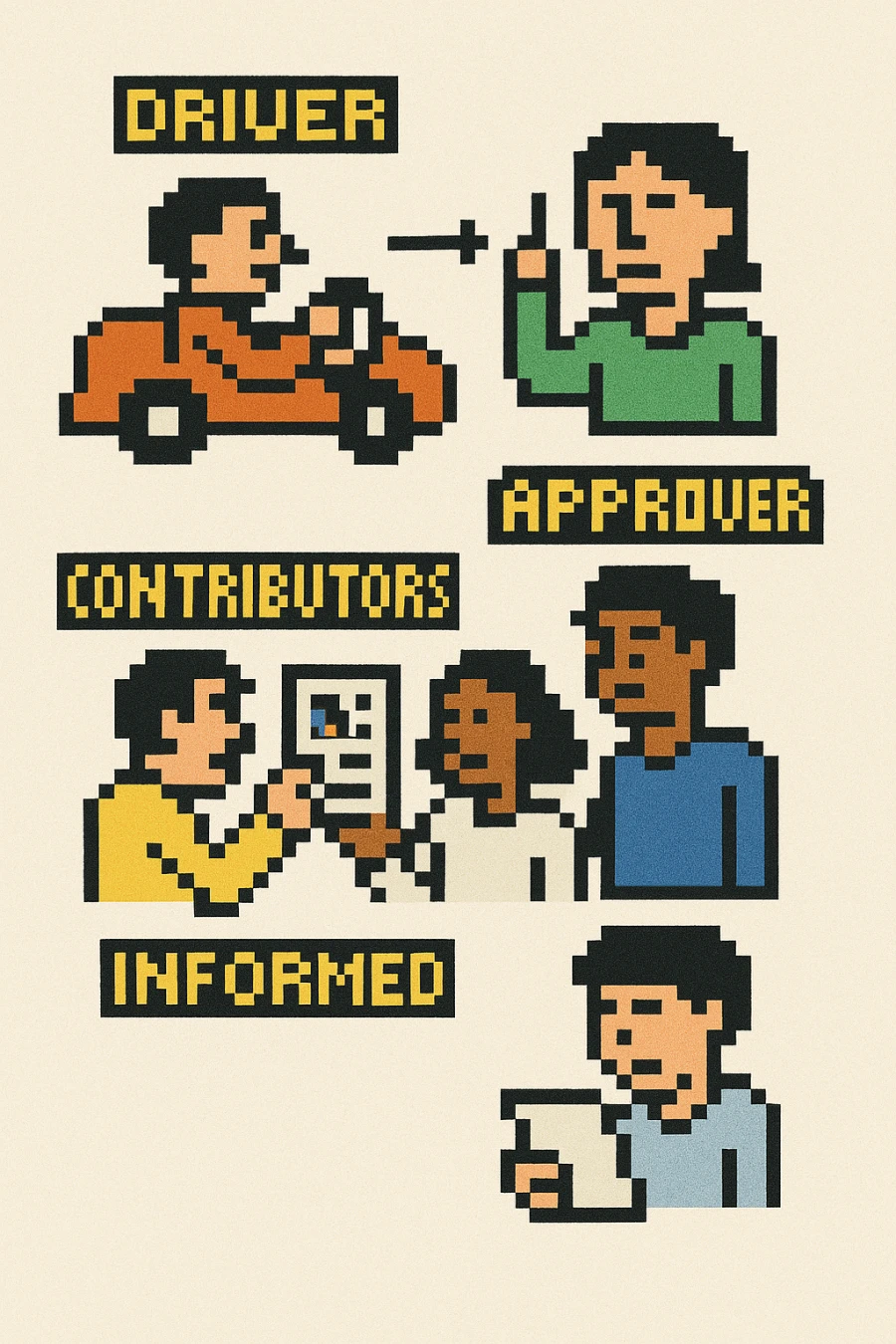I'm a father of three from Sydney, a Product Director and a Product Coach. I write about product management and run the Product Manager community.
Subscribe to receive digest emails (1 per month).
Info
Posts with Business tag.
-
Leave PMs alone!
When you're part of a good 1:1 product management community, it keeps you away from quietly losing your marbles.
One of the most common topics that surfaces is the time wasted managing expectations ... Read more -
Simple Strategy
An exciting strategy is something that people look forward to. The all-hands meetings, the inspiring slogans, the promise that this next big bet will change everything.
But real strategy doesn't spar... Read more -
Everything a CEO does can be boiled down to 3 main things: Setting direction, enabling people, and driving outcomes.
The best leaders know which of these matters most at any given time, and they shape their schedule around it.
Companies led by someone who understands that balance have a clear edge over those that don't. -
Leaders push for speed so hard they forget the basics - a clearly communicated direction.
Everyone understands the direction eventually...once it's downhill. -
The way people in an organisation work together towards shared goals forms the core of its culture.
No shared goals? No shared culture. Just meetings with snacks. -
Vibe Coding
Peter Drucker once said, “Doing the right thing - even if not perfectly executed - is far superior to perfectly executing the wrong thing.”
He was right but most of the time you can't tell if you're ... Read more -
Game Over
I've seen senior leaders talk about empowerment until it means giving up control.
It's a problem if you want to build a product-led tech company.
Product teams get blocked when decisions pile up in ... Read more -
Get comfortable being uncomfortable
When a Product Manager gets comfortable with predictability - hitting deadlines and running smooth sprints - they sometimes find themselves locked into what's safe, just keeping the engine running and... Read more -
The best PMs are detail-oriented.
Even when under pressure to start executing, they still do the work in the background to make sense of it. If it doesn't, they bring it up in a non-confronting, logical way.
I've seen big decisions being reversed because of that, saving the company tens of thousands of dollars that could have been lost by going in the wrong direction where the maths does not stack up.
Hold on to these PMs. -
Have you heard of the DACI model? It might sound like something from a government department, but it's actually a decision-making framework.
It's easy to use and helps prevent confusion about roles and responsibilities within a team working on a product or project.
Driver
This person owns the decision, pushes it forward, and chases people with gentle nudges, like the classic “Just bringing this back to the top of your inbox” email.
Approver
The one with the final say, who signs off, breaks ties and takes responsibility for the outcome.
Contributors
The people who provide ideas and context. Keep this group small - it's not a group vote.
Informed
Those kept in the loop once a decision is made. They're often the ones asking later, “Wait, when did we decide that?”

-
The best way to kill your product instincts is to outsource your customer research.
When you get answers neatly packaged in a fancy PDF with cool graphs and slick design, you feel good about it. It looks like the hardest part has been done, and you just need to look at the numbers and insights. On the surface.
As you go through the research prepared by someone else, you realise you only gain surface-level knowledge of the space.
Real research is about developing a good understanding of what your customers are experiencing - the small problems they face, along with all the nuances and frustrations.
You have to speak to them. No surveys or written responses will give you true insight into their challenges.
When you outsource research, someone else builds that understanding - not you.
Your product instincts start to fade over time. -
Prioritising customer requests purely by volume is a bad choice.
Volume doesn't mean this is the right problem to solve.
But it still blinds teams.
Yes, customer feedback is great for spotting patterns and surfacing needs. But raw demands don't point to the best answer. Building features based solely on who shouts loudest will result in bloated products or patchwork fixes that don't scale.
A client might demand Feature X but their request likely reflects a deeper pain point solvable in a more elegant, cheaper, faster and more beneficial way.
Strong product teams distil customer insights. Instead of asking: "What do customers want?" ask: "What problem are they trying to solve?".
Your customer problems are your problems. -
Skills can be taught. Values can't...or at least not fast enough.
Don't waste interviews checking boxes or handing out take-home builds. Run live Q&A sessions. Watch how they think, how they ask questions, how they handle trade-offs under pressure. That's where you find the right fit. -
Love your job. But don't let it eat your life.
Work gives you purpose, adrenaline and praise. But it also wants more. More time. More mindshare. More of you. And if you're good at it, even more will be asked.
Your energy is finite. Use it well. Set a time to log off and don't cheat it. Book your workouts like meetings. Put family time on the calendar and guard it like an investor call. Say no to evening slacks. Skip the weekend emails. Make space for life outside your inbox.
Work hard. Just don't forget who you're doing it for. -
Love lunches with my team.
It's the sideways stories, the throwaway jokes, the unfiltered glimpses into who people really are.
You won't find those in meetings or sprint reviews. They happen over a sandwich. When the pressure's off. When people exhale.
Moments like that stay with you. -
The best PMs demand clarity. They don't rush ahead until the problem, the why and the how are nailed down. Then they spread it. With sharp words. With tight updates. With documents people actually read.
-
Not sure your strategy is clear?
Ask 3 people to explain it back.
If the answers don't match, your strategy isn't working - it's just words on a page. Rewrite until their answers sound like a chorus. Strategy isn't just about direction. It's about shared language. -
Block 1 hour a week to watch support tickets or user interviews.
Don't delegate it. Don't skim AI summaries. Watch raw moments - confusion, frustration, workarounds, and aha moments. Then write down one insight. Just one.
That habit alone will sharpen your product instincts faster than any strategy workshop. -
The best leaders simplify trade-offs.
They don't avoid the tough calls. They make the path feel obvious - even when it isn't.
Don't just ask: “Why now?”
Ask: “What gets dropped if we do this?”
Passionate founders can find a hundred reasons why everything matters. Revenue. Growth. Strategy. Buzzwords galore. But trade-offs force clarity. If nothing gets cut, it's not a real decision. -
Async creates space for sharper thinking.
So before booking your next meeting, try writing instead. Start with a proposal. Add context. Share trade-offs. Then pause. Let people digest, reflect and reply in their own time. The best ideas often come from the second draft, not the first reaction.
Feel free to reach out: [email protected].
